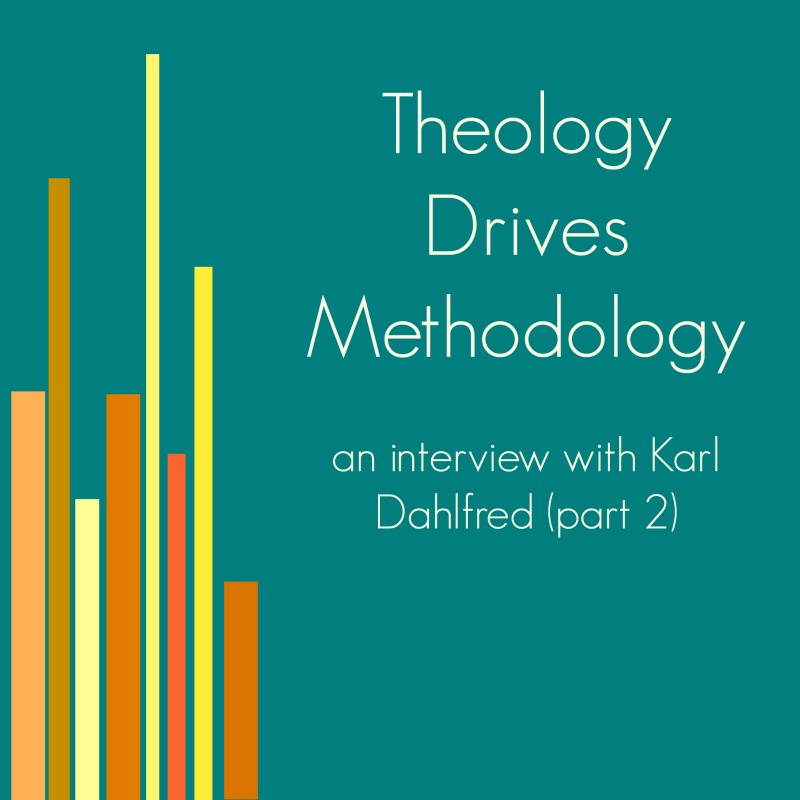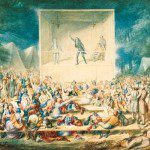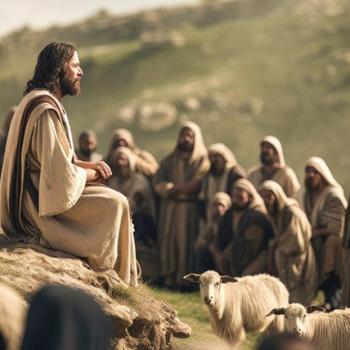Here’s the second part of Karl Dahlfred’s reply to my questions. After you read his answers, let me know your thoughts on how Theology Drives Methodology might critique various mission methods.
You seem to approve of Nevin’s critique of that Finney’s methods (and their modern descendants), namely, they make Church redundant. Recently, Scot McKnight makes the case that individualistic “soterian” gospel presentations (e.g. Four Spiritual Laws, Roman Road, etc.) have a similar effect in that there is nothing inherent to these soterian presentations that make church participation essential. How would you respond to this particular critique from McKnight?
I have not read McKnight’s critique myself, so I will just respond to the question of whether individualistic Gospel presentations such as the ones you mentioned make the church redundant. While it can’t be denied that many times God has been pleased to use such Gospel summaries to lead people to Himself, there is an underlying assumption in all of these summaries that also showed up in Finney. Finney viewed salvation as a crisis moment where one could be saved when presented with the right arguments to convince the mind. There was no sense in Finney of conversion being a process.
Nevin admitted that crisis conversions do happen, but that the most common route to salvation is the process of learning from the Scriptures in the context of the church community. I would agree with that, especially in the post-modern West or pre-Christian Buddhist and Muslim cultures where there is little to no biblical literacy in the culture at large. We are not saved by how much we know, but we do have to know something to be saved. And if you hear a Gospel summary for the first time, without having any background in Christianity beforehand, is that really enough to be saved? There are exceptional cases, of course, but usually it takes a while for people to get their minds around the Gospel. How are they going to do that? Most often it is with people, specifically with Christians. And that means church.
The use of such Gospel summaries doesn’t necessarily make the church redundant as they can be used in a church context, where conversion is viewed as a process. However, the very format of such summaries does suggest that association with a church is not necessary before conversion, and is merely a helpful extra after conversion. These summaries can also create the idea that everything you really need to know about God is contained in these 10 little pages. Everything else, including church, is in the realm of secondary non-essentials (and thus, in many people’s minds, non-important)
What are some modern missiological methods that you think reflect the same type of thinking found in Finney?
There are lots of examples. Church Planting Movements. Insider Movements. Church Growth theory, a la Donald McGavran. Over-devotion to contextualization, especially the mindset that the more native we go with our ceremonies, the quicker people will come to faith. There are good points to be learned from among all these methodologies, but the mindset that goes along with them is often the same as Finney’s, namely that if we just use this method faithfully, then that will be the key to seeing a rapid harvest of souls come into the church. Ever since Finney, evangelicals have been chasing after the latest and greatest method that will complete the Great Commission in their lifetime.
Any other books or articles you would suggest people check out on this matter of connecting theology and methods?
I have not found a lot of literature out there specifically addressing the relationship between theology and methodology, other than brief general statements saying that what we believe impacts how we live.
Concerning the altar call and sinner’s prayer in particular, Iain Murray’s “Revival and Revivalism” gives a very in-depth historical overview of the changes that took place in theology and methodology between the first and second great awakening. Murray’s short booklet “The Invitation System” is also very helpful as he dissects a Billy Graham crusade in London. And David Bennett’s “The Altar Call: Origins and Present Usage” is a solid well-written history and critique of the altar call from its invention in the later 18th century to today.

















